14 Behavior Analyst Interview Questions & Answers
Aspiring behavior analysts need to prepare for the interview process. No two interviews are the same!
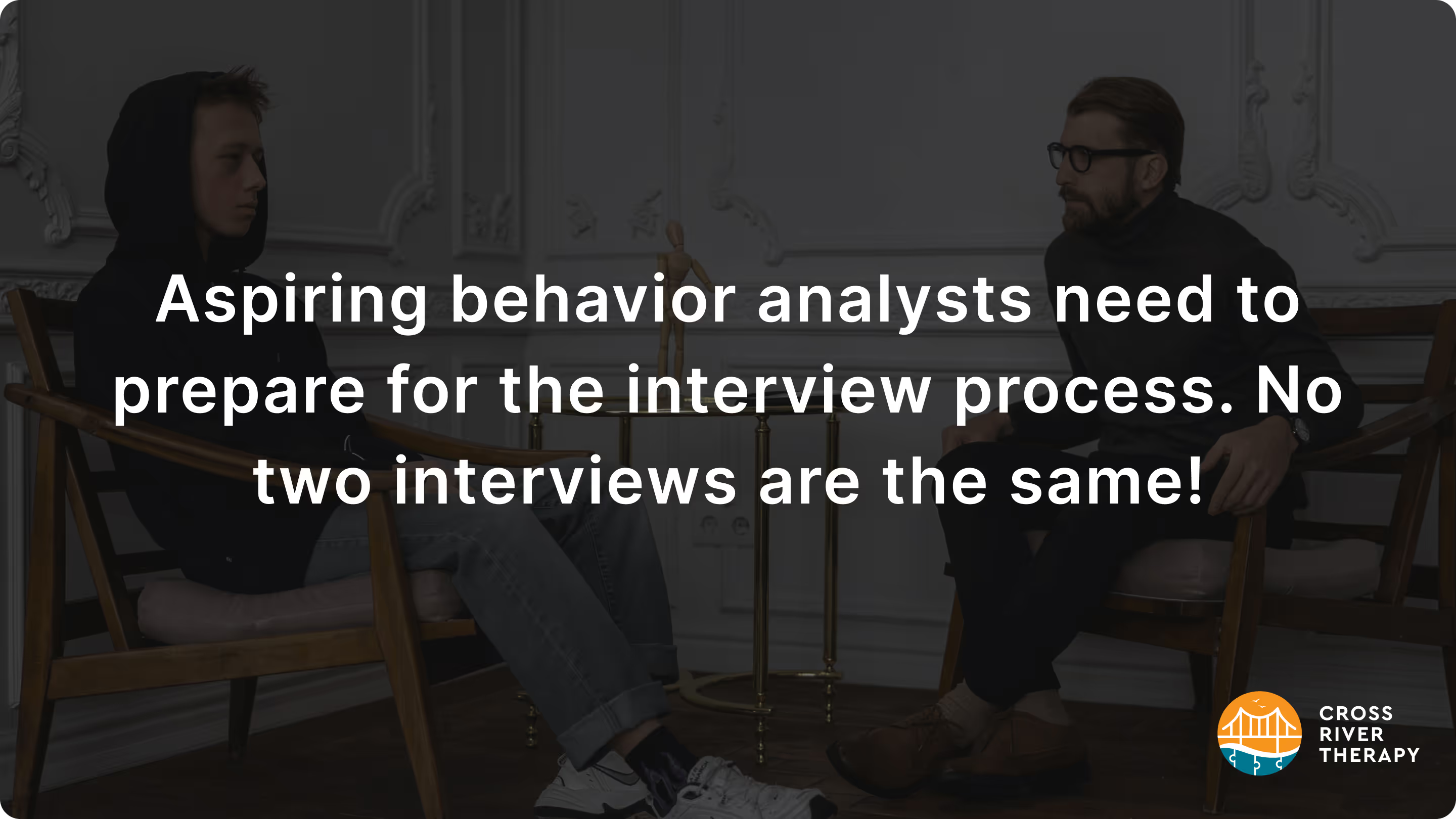
If you're preparing for a BCBA interview, we've got you covered. Below is a list of frequently asked interview questions together with their answers. After this guide, you should be prepared for your BCBA interview!
14 BCBA Interview Questions & Answers
Here are the most commonly questions asked questions in a BCBA interview:
1. Why are you interested in this role?
In your interview, the employer asks why you are interested in this role to determine your motivation. To give the answer they're looking for, you need to understand the employer's needs. Then, explain how you will meet those needs.
Answer
"I believe that my skills and experience as a behavior analyst will help me contribute directly towards your team of BCBAs and RBTs. This role has great potential for growth within the organization which means more opportunities for me to grow in my career."
2. What are your greatest achievements?
One of the most common behavior analyst interview questions is "what are your greatest achievements?"
When an employer asks this question, they want to find out if you have a good work ethic, if you're passionate, and if you're driven to be successful and make the company you're working for more successful.
In your answer, share in-depth two or three examples of your accomplishments which demonstrate your leadership skills.
Answer
"One of my greatest achievements is successfully implementing a behavior program for a handful of patients who all have different levels of autism. Working with multiple patients required me to collaborate with the team, parents, and students. It also meant there needed to be unique behavior therapy for each patient, which forced me to think outside of the box."
3. What are the roles of a BCBA?
This question often reveals whether or not you have researched this profession or not, and it helps the employer understand how much you know about behavior analysis.
Being a behavior analyst involves numerous roles, including:
- Assisting in designing programs for kids on all levels of autism
- Implementing and evaluating programs that promote growth, independence, and human development
Answer
"The main responsibilities of a BCBA include creating individualized interventions for autistic children, monitoring progress charts periodically, and keeping track of your patient's behavior and progress towards goals."
4. Why do you feel you are suited for this role?
The potential employer usually asks this question to find out if you have researched the company or not. Your answer should explain how your skills and experience are a good fit for what the company needs to be successful when hiring a BCBA.
Answer
"I'm confident I am well suited for this role because my background in psychology and behavior therapy has given me knowledge of how human behavior is impacted by the environment, and how human behavior can be improved through the process of behavior analysis. I also have numerous years of experience working with children on the autism spectrum who need support while growing up on the spectrum. I feel my skills would be a large asset to your company."
5. Describe a time when you failed as a behavior analyst and what you learned from it
When an interviewer asks this question, they're looking to find out if you have dealt well with adversity and how you have used the obstacle as an opportunity to grow in your career. Your answer should describe a situation in which you failed and how you overcame it.
Answer
"In my last position, I experienced a challenging obstacle which was finding ways to motivate employees who didn't feel that they fit well in our company. I overcame this obstacle by creating different incentives for employees which ensured we spent more time together outside of work which allowed them to be more comfortable around each other.
The result was those employees who didn't feel comfortable in our organization ended up opening up to eachother during team meetings, and our team projects became more productive since everyone got along better."
6. What qualities does a behavior analyst need to have to be successful?
Interviewers want to know how you handle difficult situations, such as treating a client who is difficult to deal with. The employer is looking to find out if you have the strong communication skills that are essential for all aspects of this job. They want to make sure you work well in teams. Make sure your answer covers all of these requirements.
Answer
"A behavior analyst needs a multitude of qualities/skills to be successful in their role. First, they need to have strong interpersonal skills that include excellent written and verbal communication skills. BCBAs will be required to communicate frequently with both children and their parents, so having strong communication skills is a crucial skill to have.
Next, a behavior analyst needs to be a strong team player; they should be able to work well with other team members to ensure everyone's voice is heard. Also, having self-control to not interrupt others who might not feel comfortable speaking up first is a crucial quality every behavior analyst should have."
7. How do you stay motivated at work?
Interviewers want to know you stay motivated when the work gets challenging, tiring, or boring. They want to discover what drives you to be successful both at work and in your personal life because the ability to stay motivated is a skill you need in this position.
Answer
"I believe that maintaining a healthy balance between my professional and personal life is essential to my motivation staying high in both parts of my life. Maintaining that healthy balance keeps me grounded when I'm dealing with challenging situations at work, and it helps me have time to rest from the challenges I might experience at work.
I enjoy spending time with loved ones, exercising, listening to music, and reading good books. Going to the park helps me clear my mind and improves my mood after having a rough day at work."
8. What major challenges did you face in your previous role?
You'll be asked this question because the employer wants to see how you can deal with adversity. Make sure to speak about any creative solutions you implemented to work through problems in your previous role.
Answer
"In a previous role I was working as a behavior analyst who helped ABA therapists and RBTs provide applied behavior analysis to children on the autism spectrum. As a team, the major challenge we faced was we didn't have enough team members to treat the large number of patients our company had. We ended up taking matters into our own hands by helping our company recruit more BCBAs and RBTs, which eventually solved the problem."
9. What is your daily routine as a behavior analyst?
Interviewers want to see what your daily routine is like and if you are able to handle tasks that need constant attention to detail. Explain your daily routine:
Answer
"My daily routine is as follows: I usually work on setting up assessment tools for students. This includes conducting assessments or developing new ones before moving onto data entry.
Data entry consists of taking notes during therapy, and documenting behavioral observations into a database. My day also consists of attending staff meetings, communicating with parents where we discuss their child's progress and growth, and thinking of new therapy strategies I can use for my patients."
10. What is your experience with behavior analysis?
When interviewers ask this question, they want to know if you have experience in ABA therapy and if so, what kind of experience do you have. They also want to ensure there aren't any inconsistencies in your work history because that shows a lack of commitment to your career.
Answer
"I have worked at a private school as an assistant BCBA where I had patients ranging from five-year-olds to teenagers. My role involved providing psychotherapy support services on-site before branching out into another facility where I provided autism therapy to children ages 1-5."
11. How do you communicate with patients?
If an interviewer asks about how you communicate with clients, they want to discover how you elicit positive change in the children you work with. Your response should include details about how you demonstrate sensitivity to interpersonal communications while providing empathy to all of your patients.
Answer
"I communicate with my patients by helping them understand how much their behaviors matter, and how consequences are the direct result of inappropriate behaviors. My patients feel more motivated to make positive changes that produce long-lasting results over time if I show empathy towards their struggles."
12. What is the biggest challenge you think BCBAs face?
The interviewer wants to see if you can identify potential challenges in this position and offer possible solutions. Before answering this question, you must research the employer's business model to understand what problem their business is likely facing. Your answer should highlight how your unique skillset will allow you to overcome potential challenges in your job.
Answer
"One of the biggest challenges I think BCBAs face is the physical and emotional demands of working 1-on-1 with children who have challenging behaviors. Autistic children or children with other developmental disabilities can become aggressive, might leave the therapy area, or destroy property. Keeping your emotions under control as a behavior analyst is a crucial skill to have when working with children who have developmental disabilities, and it is simultaneously the biggest challenge I think BCBAs face."
13. What's your process for developing treatment goals?
Treatment goals are the foundation for a successful behavior treatment plan. Interviewers will ask this question because they want to find out how you go about developing such goals for patients. In your answer, you need to demonstrate knowledge of behavior analytic principles.
Answer
"I start by collecting baseline information which gives me the ability to identify target behaviors in patients. These behaviors need to either be improved or eliminated. Next, I use natural environment data collection methods to accurately represent the frequency with which negative behaviors occur.
14. What kind of mindset should BCBAs have?
As a BCBA, you need to have a strong ability to step back and analyze a situation objectively. Interviewers need to know what kind of mindset you have, and what successful BCBAs need.
Answer
"To be successful in my role, I need to approach challenging situations with a clear and calm mindset. Whether it's communicating to parents to help them understand the challenges their child is going through, or it's collaborating with other BCBAs or RBTs about how to best treat a child, having clarity and peace of mind will help BCBAs treat patients successfully."
Conclusion
Now you should be prepared for your BCBA interview. Constantly review these questions and answers before the interview!
Recent News
Related articles

What Is An ABA Therapist? ABA Job Description
An ABA therapist is a therapy professional who works one-on-one with children on the autism spectrum.

What Is An Applied Behavior Analyst + What Do They Do
A behavioral analyst is a clinician with masters or doctoral degree who evaluates, designs, and implements ABA.
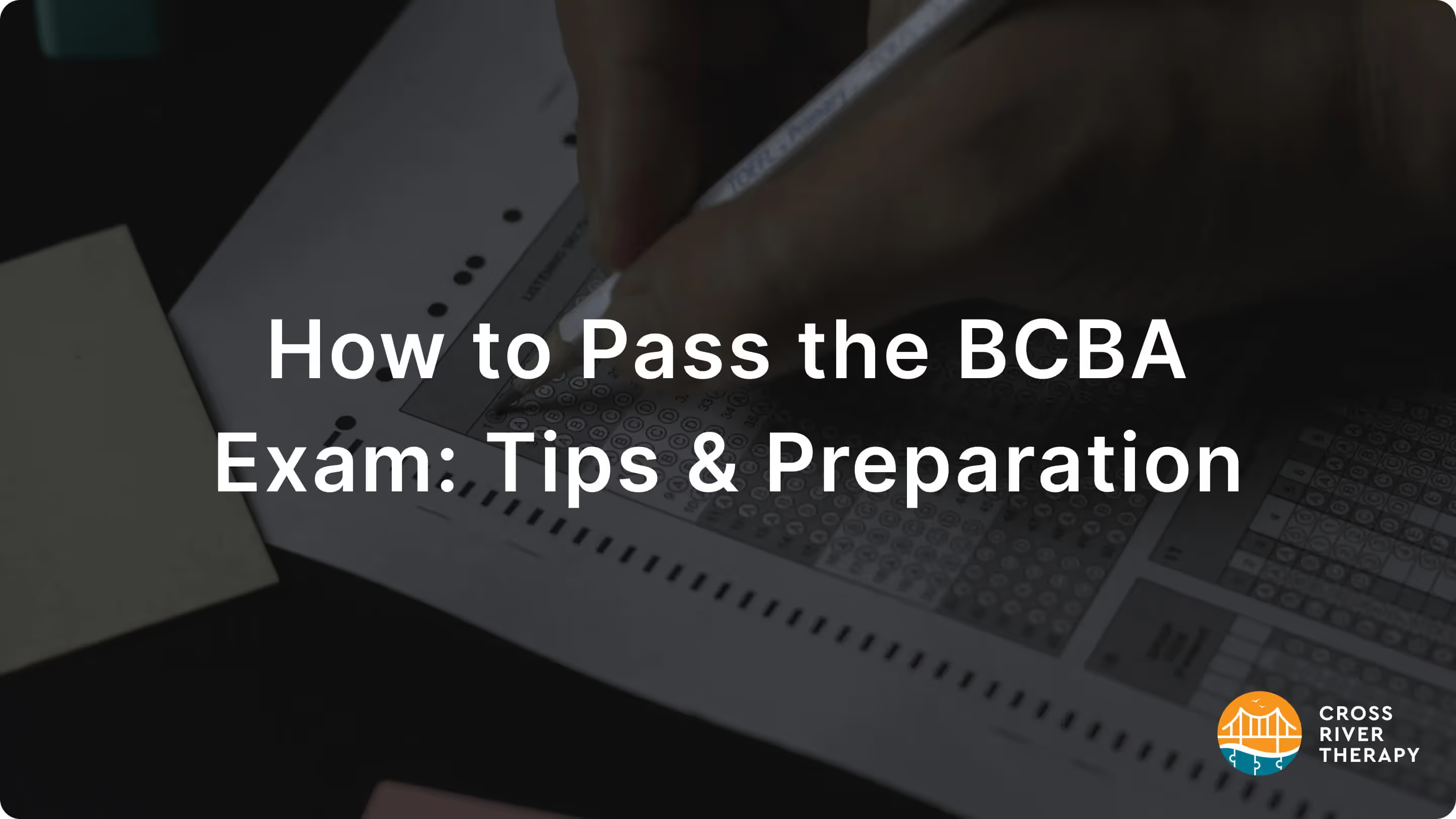
How to Pass the BCBA Exam: Tips & Preparation
A large amount of time and energy is needed in order to pass the BCBA exam. Learn how to pass it in this guide.
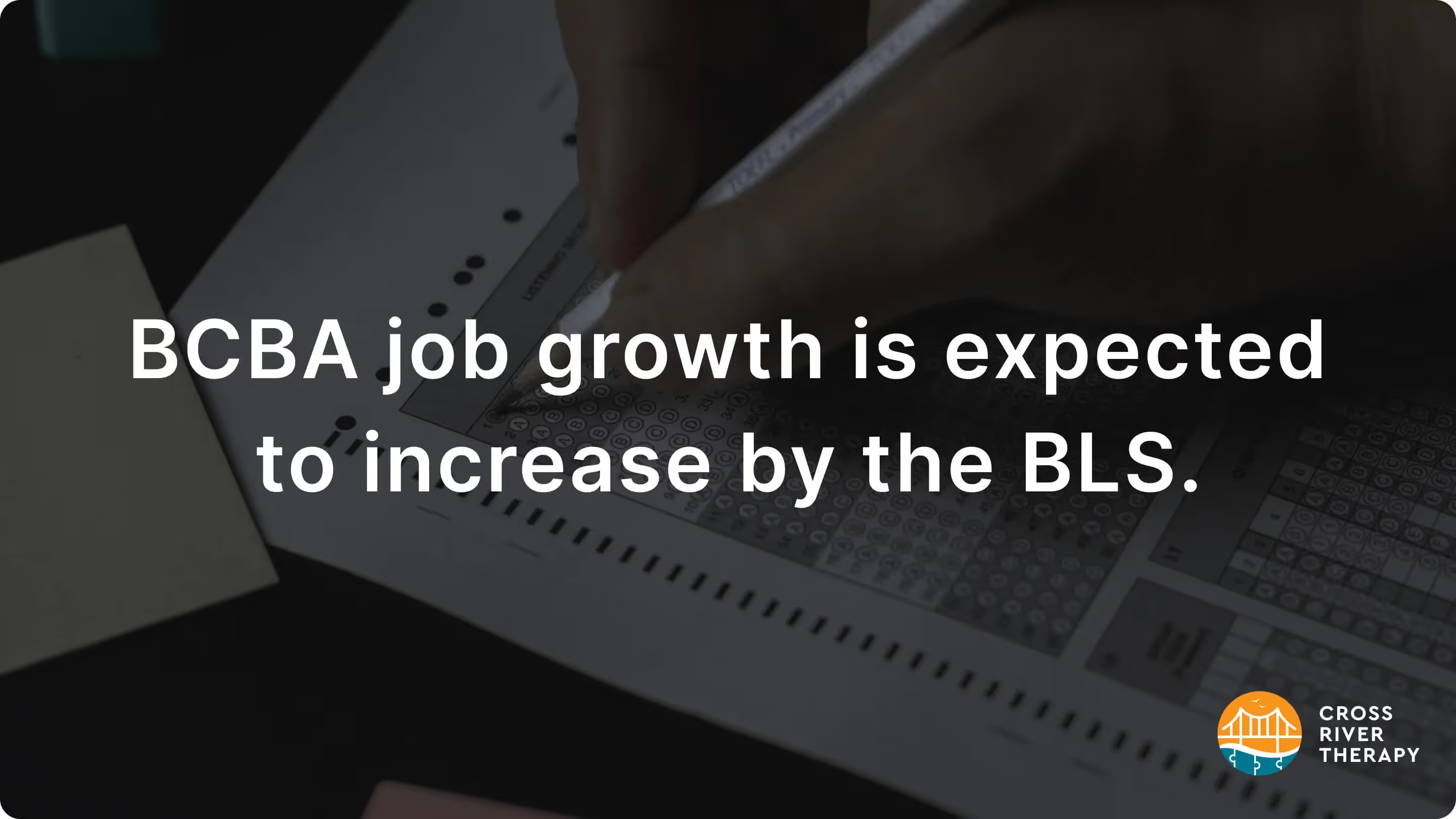
The Rate of Job Growth for BCBAs (In 2023)
BCBA job growth is expected to increase by over 20% in the next eight years.

14 Behavior Analyst Interview Questions & Answers
Aspiring behavior analysts need to prepare for the interview process. No two interviews are the same!
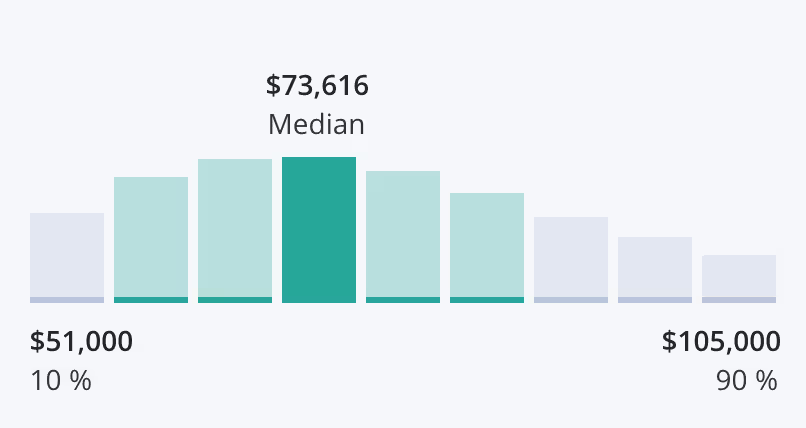
Average BCBA Salaries in 2023 (Best States & Cities)
The average BCBA salary in the US is $75,784/year or $35.39/hour. The average entry level salary is $51,000/year.

Average BCaBA Salary By State
The average BCaBA salary in the United States is $65,978 per year, according to ZipRecruiter.

How To Become A Board Certified Behavior Analyst (BCBA)
Becoming a BCBA can take a total of 6 to 10 years. How long it takes depends on several factors.

11 Best BCBA Programs & Schools (In-Person & Online)
Here are the best BCBA programs that prepare students to become board-certified behavior analysts.
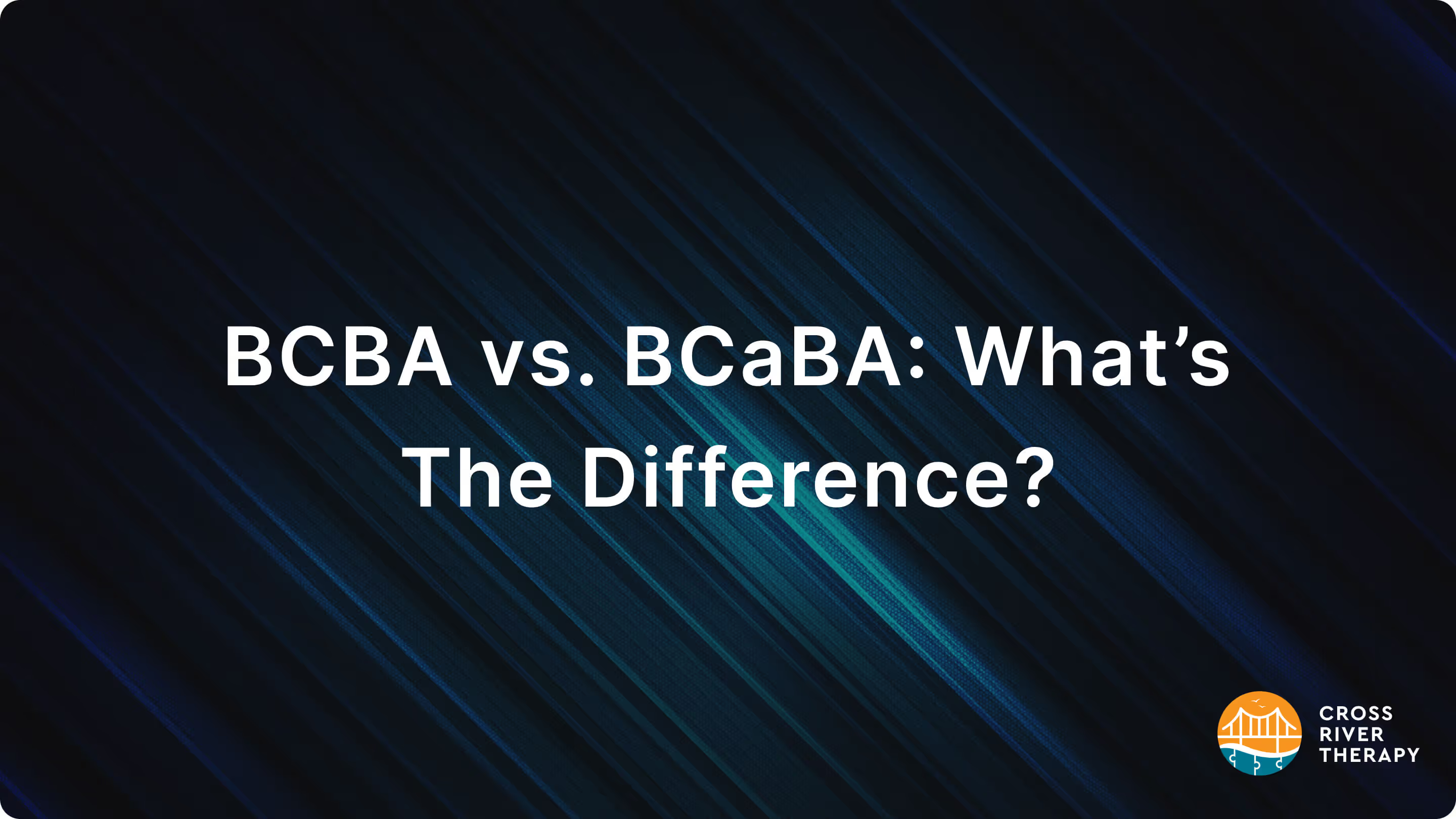
BCBA vs. BCaBA: What’s The Difference?
Find out the main differences between a BCBA and a BCaBA in this guide.

Best BCBA Career Path To Take: Ultimate Guide
Here’s the best behavior analyst (BCBA) career path to take in the field of ABA.

